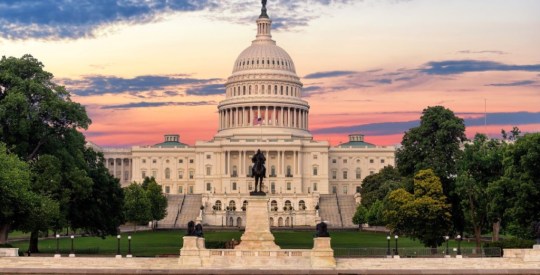In a recent episode of “Ten Minute Talks,” HousingWire president Diego Sanchez spoke with Chris Morton of the American Land Title Association (ALTA) to shed light on the future of title insurance, alternative options, regulations, market competition and coverage costs.
Morton, who serves as ALTA’s senior vice president of public affairs and chief advocacy officer, focuses on educating state and federal officials on legislative and regulatory issues that impact the title industry. He also works to highlight the importance of title insurance in the integrity of real estate transactions and the preservation of property rights.
To start the discussion, Sanchez mentions emerging competition in the title industry between traditional products and alternative options, such as an attorney opinion letter (AOL).
Morton mentions that competition in the market depends on several factors — including price, service, transaction times, efficiency and other metrics. There are about 50 licensed title insurers and some 17,000 agents, according to Morton, and 90% of them operate on the small-business level to serve local communities. As such, competition is inherent.
But Morton notes that attorney opinion letters operate on a different set of rules.
“The variety of emerging attorney opinion letters that are in the market are really not subject to the same kinds of regulatory oversight and scrutiny as title Insurance products are, despite some claims to the contrary,” Morton said.
AOLs only offer protection against title defects found via public records, Morton said, leaving out the vital protection components offered by title insurance products.
Morton also dives into state and federal regulatory standards in the title industry. On the state level, title companies submit their rates and policies to protect against unfair fees and discriminatory treatment of a consumer. Attorney opinion letters, meanwhile, are regulated by state bar associations.
Bar associations only address licensing and ethical issues while offering little to no consumer oversight, attorney practice regulation or work product oversight, Morton said. Even with insurance offering for consumers, AOL insurers aren’t regulated or approved to tackle title risk. Most importantly, Morton said that attorney opinion letters offer limited coverage and can’t defend against title defects that can’t be discovered via public records.
Morton references key statistics from Milliman, an actuarial company, to reinforce the scarcity of title defects in public records.
“Nearly 30% of title insurance losses and claims really arose from issues that were not found or could not be found in those public records,” Morton said.
Since attorney opinion letters focus on public records, this statistic leaves a lot on the table. For example, fraud and forgery claims cost more than $143,000 on average — and attorney opinion letters can’t cover them because they typically aren’t reflected on public records.
Morton said that a lender’s title insurance policy provides more coverage at a better overall price.
Next, the conversation shifts to discuss market share. Sanchez points out that more than 80% of the title insurance market is dominated by the “big four“ — Fidelity National Financial, Old Republic Title, First American Title and Stewart Title. Morton emphasizes that competition is prominent in the market and investments are ongoing. Midsized underwriters also have more market opportunities.
Morton also mentions that title insurance prices have decreased by 5% over the past five years, which is an important indicator of where the title industry is headed.
The conversation ends with a discussion on the Biden administration’s title waiver program for some refinance loans. Morton cautions against allowing the government-sponsored enterprises (GSEs) to enter the private title insurance market.
“What it [the title waiver program] is going to do is increase risk and allow the GSEs to get into the primary market, which they really do not understand nor are they set up to conduct.”





